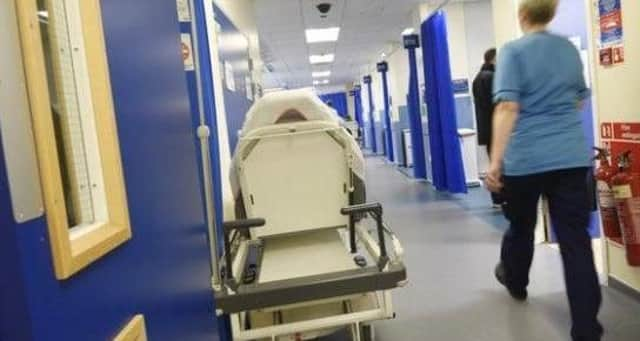Edinburgh health bosses propose £15.9m of cuts to city health and social care services amid 'increased financial pressures'


More than £15 million of cuts to health and social care services in the capital have been proposed by the Edinburgh Integration Joint Board (EIJB).
The board, a council and NHS partnership that manages health services in the city, says it is battling increased financial pressures due to an ageing population and rise in the number of people living with long term conditions.
Advertisement
Hide AdAdvertisement
Hide AdGoing in to 2020/21, EIJB projected costs outweighed allocated health and care budgets by £21.9 million.
With £6 million already covered from additional cost mitigating actions elsewhere, over the past 10 months EIJB officials have developed a four-phased Savings and Recovery Programme to make up the remaining £15.9 million of savings.
Phase zero, which has already been approved, involved £2.96 million of cuts to learning disability services, set aside budgets, external housing support, day centres, vacancy freezes and adult sensory impairment services.
Phase one, which entails cuts totalling £8.95 million, will be put forward for approval at a meeting next Tuesday.
Advertisement
Hide AdAdvertisement
Hide AdEach proposed cut will be voted on individually by the board’s 10 voting members, an even mix of City of Edinburgh councillors and NHS Lothian representatives.
Proposed phase one cuts include:
£1 million from Home First, a scheme providing care support for people from their own homes rather than hospitals.
£4.10 million from the board’s purchasing budget, which funds packages of care and payments that will help people in need of care to live independently.
£60,000 from further learning disability services.
£1.45 from carers investment.
£250,000 from community equipment.
£1.96 million from prescribing activities.
£50,000 from sexual health services, pending a review of how efficiencies can be made.
Advertisement
Hide AdAdvertisement
Hide Ad£80,000 from rehabilitation services, pending a review of how efficiencies can be made.
Phases two and three of the savings programme are still undergoing review and will be put to the board at a later date.
EIJB documents reveal that the Savings and Recovery Programme “may impact adversely on a combination of service quality, level of service provided, outcomes for people and the ability to maintain performance improvements.”
Meanwhile, proposed cuts to sexual health services and the purchasing budget may lead to an “increase in population health risk and inequalities.”
Advertisement
Hide AdAdvertisement
Hide AdAge Scotland’s Chief Executive, Brian Sloan, said: “We already know that health and social care in Scotland face immense pressure in terms of funding and investment – pressure that has been hugely amplified by the coronavirus pandemic.
“Finances are understandably tight at the moment, but recent months have further exposed the extremely fragile state of the social care system and underlined just how crucial its services are to the health and wellbeing of older people across Scotland.
“Demand will only increase as our population ages and it is likely that our health and social care services will face future challenges in terms of helping people live well and supporting growing numbers of people at an older age.
“We should be working to ensure they are properly protected and resourced as we come through this crisis, rather than cutting vital funding at an already difficult time.”
Advertisement
Hide AdAdvertisement
Hide AdA Spokesperson for the Edinburgh Health and Social Care Partnership said: “For the past three years the Edinburgh Integrated Joint Board (EIJB) has annually agreed a programme of savings to address any identified budget gap.
“As we look at resuming the services we provide, we have an opportunity to do things differently to adapt to life after the pandemic and be more efficient.
“The EIJB will consider a range of proposals to achieve this at the meeting on 21 July. Should they be approved, we will move to implement our plans and communicate regularly about the process and timescales.”